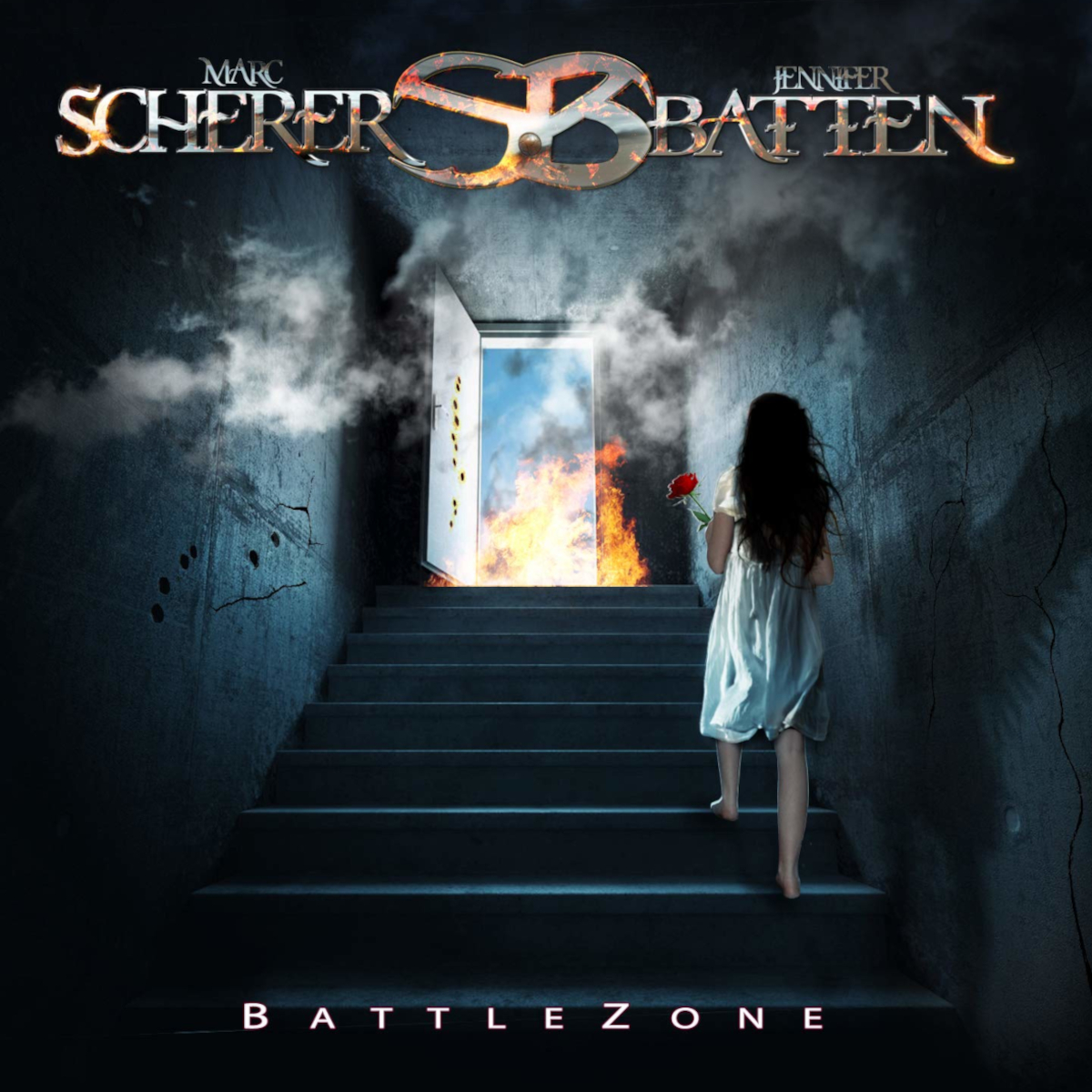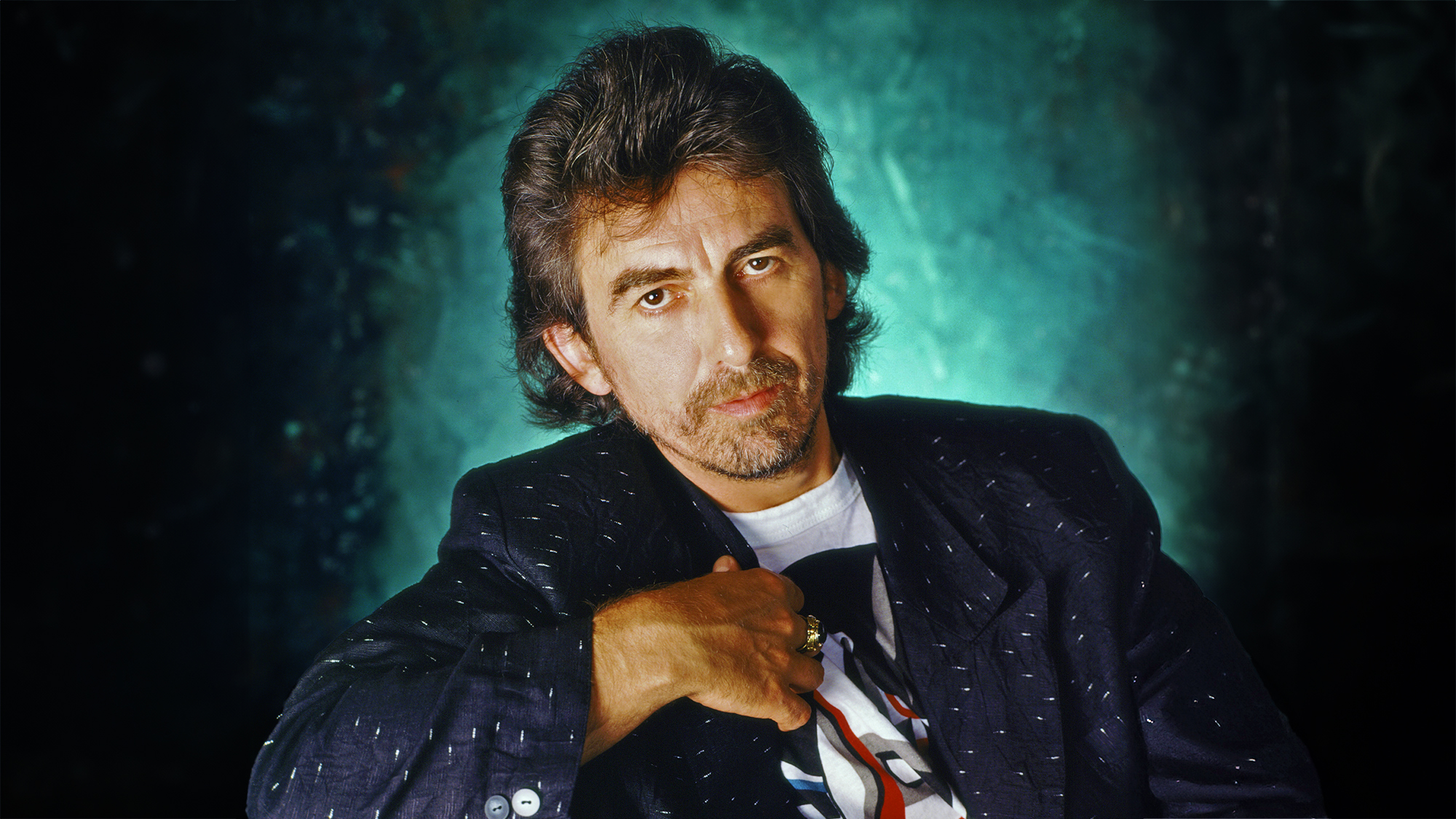“They Turned out to Be the Most Prolific Sessions I’ve Ever Done”: Jennifer Batten Explains How She Transformed a Session Gig Into a Starring Role
Melodic, unpredictable and jaw-dropping, the guitarist’s fiery solos on the ‘BattleZone’ LP elevated her name “above the title”

***The following appeared in the February 2018 issue of Guitar Player***
It was supposed to be just another session gig for Jennifer Batten. She had been called to action by producer/guitarist/songwriter Jim Peterik and vocalist Marc Scherer to add solos to their latest project.
But then, something wonderful and generous and surprising happened.
“I thought I was done after the second set of sessions,” says Batten, “but Marc called me and said, ‘You know, your guitar is actually another voice on the record, so I want you to be a bigger part of it.’”
Marc called me and said, ‘You know, your guitar is actually another voice on the record’
Jennifer Batten
That “bigger part” was actually an epic upgrade to the artist’s first-class lounge, as Batten’s name ended up on the marquee for the 2017 album BattleZone by Scherer/Batten (MelodicRock).
“I think I’m in it by default,” she laughs. “I wasn’t such a big part of the thing at first – I kind of came in at the 11th hour.”
All the latest guitar news, interviews, lessons, reviews, deals and more, direct to your inbox!
While movie directors often take total credit for resolutely collaborative works with their “A Film By” credit, it’s truly gratifying that Peterik and Scherer recognized and honored Batten’s contributions “above the title.”
And she deserves it.
Her fiery solos are astonishing – melodic and unpredictable and jaw-dropping – and they help bring an already well-writtten and thrillingly produced project to a near-cinematic level of emotional impact.

How did Jim direct the initial sessions for BattleZone?
Jim guided me through parts he knew he wanted, or little decorations, but he basically just let me go for it. For the solos, he pretty much said, “Here’s where you start, and here’s where you stop.”
They turned out to be the most prolific sessions I’ve ever done, because we recorded four songs in a day in a half, and we wrote a new song (“BattleZone”) after breakfast the next morning. It was pretty phenomenal, and there was such a positive vibe in the studio.
It was pretty much off the cuff – ‘On your mark, get set, go!’
Jennifer Batten
Danette Pahl, the executive producer, was the ultimate cheerleader. She was just always dancing and smiling. It helps so much to have that kind of environment when you go in – especially when it’s a new group of people, you don’t know them, and you aren’t sure if what you play is going to be what they want. That’s always a crapshoot. But it was one big happy family.
That first session must have been a monster – four songs in a day?
I thought they were delusional [laughs]. And I had no idea that writing a song was part of the plan. Jim said, “Come up with a riff,” and he started singing the melodies with random words – or no words at all – into a digital recorder, and we built it into this huge thing. It was fun to watch it grow.
When you were tracking, what elements did you focus on to devise your own parts – the melody, lyrics?
I just went for it. I react to what I’m hearing in the melody and the groove, and I see what they make me want to do. It was pretty much off the cuff – “On your mark, get set, go!” Although, for the first session, I did listen to the music beforehand and jammed with it for a few days at home – just to get used to the vibe.
I find that to be helpful, rather than jumping into things. Marc and Jim probably won’t be thrilled to hear this, but the lyrics are the last thing that comes into my thoughts.
Did working with Jim and Marc’s songs for the first time inform your solos any differently than usual?
Well, I’m always trying to jump in and do stuff that I haven’t done before, because nobody is going to get as sick of your own playing as yourself. I mean, you hear it more than anybody. So I try to plant a seed in my brain to take solos to places I haven’t been before.
I’m always trying to jump in and do stuff that I haven’t done before
Jennifer Batten
So how did that tactic manifest itself for BattleZone?
I tried to get wider jumps in – through skipping strings and tapping things – because that’s always a challenge. But I’ll tell you, I’ve also had some pain issues with my hands, so I’ve gone to a hybrid set of much lighter strings – .008 to .042. All of a sudden, that opened up all kinds of fun, really subtle micro bends.
I also like using the tremolo bar to make lines more vocal, as well as to slide in and out of notes. That comes from being influenced by Indian music when I was with Jeff Beck, and he recorded “Nadia” – which was based off an Indian vocal. I have a great admiration for Indian music. It’s so insanely difficult.
Did your solos ever get too weird for them?
Actually, I was worried about that. Jim did have me do a couple of things over. But for the solo on “Dreaming With My Eyes Wide Open” at around 2:18, I was using a Whammy an octave down that almost sounds like a keyboard – an Emerson, Lake & Palmer kind of thing.
I usually set the Whammy to a whole-step down to get a slide effect, and my solo sound almost always has that engaged in it. But, for this, I went for an octave down to force myself into a different kind of thinking. It can be a little difficult on the brain when you’re playing something, and know how it should sound, but your foot takes various notes to another octave.
Take any ordinary thing you always play, and move every other note or so an octave down, and, suddenly, it’s a whole new phrase
Jennifer Batten
I think I first got into that kind of thinking from GIT, when I learned some octave-displacement riffs from Joe Diorio and his Intervallic Designs book. You can take any ordinary thing you always play, and move every other note or so an octave down, and, suddenly, it’s a whole new phrase.
Anyway, for “Dreaming,” I thought I might get a “Can we do this over?” That was definitely one I was stretching to take it somewhere else. But they left it as is.
Did you bring your signature Washburn to the sessions?
For the first session, I did use my main Washburn – the JB100 that I’ve used for 20 years – and I retired it right after. It has been broken, it has been stolen, and it has been around the world being abused by airlines for decades.
Then, I brought the new Washburn Parallaxe PXM10 to the second session. It’s trippy. I really like it. It’s very comfortable and it was the Stevens cutaway that makes it a breeze to reach the highest frets, and it’s the first time I’ve ever owned a 24-fret guitar.
Sometimes, I still get lost up there, like, “Oh crap, am I in A or B?” I loaded it with Fishman Fluence pickups – the Modern in the bridge, and two single-coils–and I also had them do a custom short-scale neck, because now is not the time to brutalize my fingers by changing to a Fender scale after so many years playing a Gibson.
I hope you’ve sent the JB-100 off to a well-deserved retirement in Ibiza.
[Laughs]. After the last time it was stolen, I said, “Okay, I have it back. I’m just going to put it on a wall and look at it.”
What about the amps and pedals?
I walked in with Thomas Blug’s BluGuitar Amp1, and I used it for most all of the amp sounds. They really liked it, so if they don’t have one by now, I’d be surprised.
If you look at my history, from Michael Jackson to Jeff Beck, it’s like 180 degrees in different directions
Jennifer Batten
There was also a DigiTech RP1000 on a few things, which has a built-in expression pedal for Whammy, wah, and other effects.
I didn’t use much else-except on the intro to “Cuts Deep.” For that, I used an RP1000 patch called Swell. It’s kind of like the old Boss Slow Gear. You don’t hear the full attack of the note at first, but then the volume swells up automatically. In fact, that part was the very first thing I recorded, because I wanted to play along with the piano track.
How do you feel the BattleZone experience fits into your personal catalog?
If you look at my history, from Michael Jackson to Jeff Beck, it’s like 180 degrees in different directions. So this project kind of fits with the nonsense of my resume [laughs]. And I do like variety.
